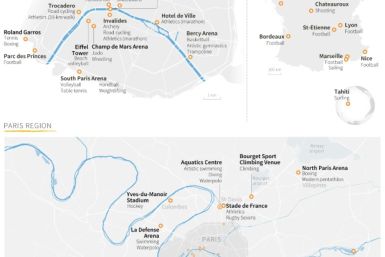Australia's Manufacturing Activity Barely Improves in November
Manufacturing activity remained flat in November according to the latest Australian Industry Group - PwC Australian Performance of Manufacturing Index (Australian PMI®). The Australian PMI® was broadly unchanged, up just 0.4 points to 47.8, to remain below the 50 points level separating expansion from contraction.
Manufacturing continues to be impacted by a range of factors with businesses citing low levels of building activity, competition from cheap imports, skilled labour shortages and uncertainty over the impacts of the carbon tax as impediments to stronger performance in November. Construction materials, clothing & footwear and wood products & furniture were the poorest performing sub-sectors in the month whereas transport equipment and miscellaneous manufacturers registered strong levels of activity.
Australian Industry Group Chief Executive, Heather Ridout, said: "Manufacturing conditions clearly remain tough and have been so for much of the past year raising critical issues for policy-makers and businesses alike. While the Australian PMI® shows signs of an easing in the pace of decline in current activity and new orders, employment levels fell sharply in November suggesting an ongoing loss of manufacturing capability. This highlights the importance of the Federal Government's manufacturing taskforce in developing a long-term strategy for the industry. At the same time, it is encouraging that the just released ABS capital expenditure data indicates a solid upturn in manufacturing investment suggesting that underneath the data there is a strong vein of confidence in the prospects for the industry," Mrs Ridout said.
PwC Australian Head of Industrial Products, Peter Le Huray, said: "November's Australian PMI®, shows a diversity of experience across the manufacturing sector. Activity expanded in the basic metals, chemicals, petroleum & coal, transport equipment and miscellaneous manufacturers in contrast to particularly sharp declines in activity in the clothing & footwear, fabricated metals, paper, publishing & printing and construction materials sub-sectors. Manufacturers continue to seek opportunities to grow their businesses and, as evidenced by the fall in employment over the month, they are also trimming their operations where the outlook no longer justifies existing staff levels," Mr Le Huray said.
Australian PMI®: Key Findings for November:
- The Australian Industry Group - PwC Australian Performance of Manufacturing Index (Australian PMI®) remained in the red in November, lifting just 0.4 points to 47.8 (readings below 50 indicate a contraction in activity).
- The decline in activity was particularly pronounced in the construction materials; clothing & footwear and wood products & furniture sub-sectors.
- Manufacturers cited negative influences of slowing sales, low levels of building activity, cheap imported goods together with ongoing skills shortages and concern over the impact of the carbon tax as affecting activity.
- Eight of the 12 sub-sectors recorded declines in November - unchanged from the previous month.
- Miscellaneous and transport equipment were the strongest performing sub-sectors.
- The new orders sub-index rose 1.2 points to 48.1 with seven of the 12 sub-sectors registering a drop in orders.
- The employment sub-index fell sharply in November to 45.3 and has now registered only one month of expansion over the past year.
- Queensland was the only state to record an expansion in manufacturing activity in November.






